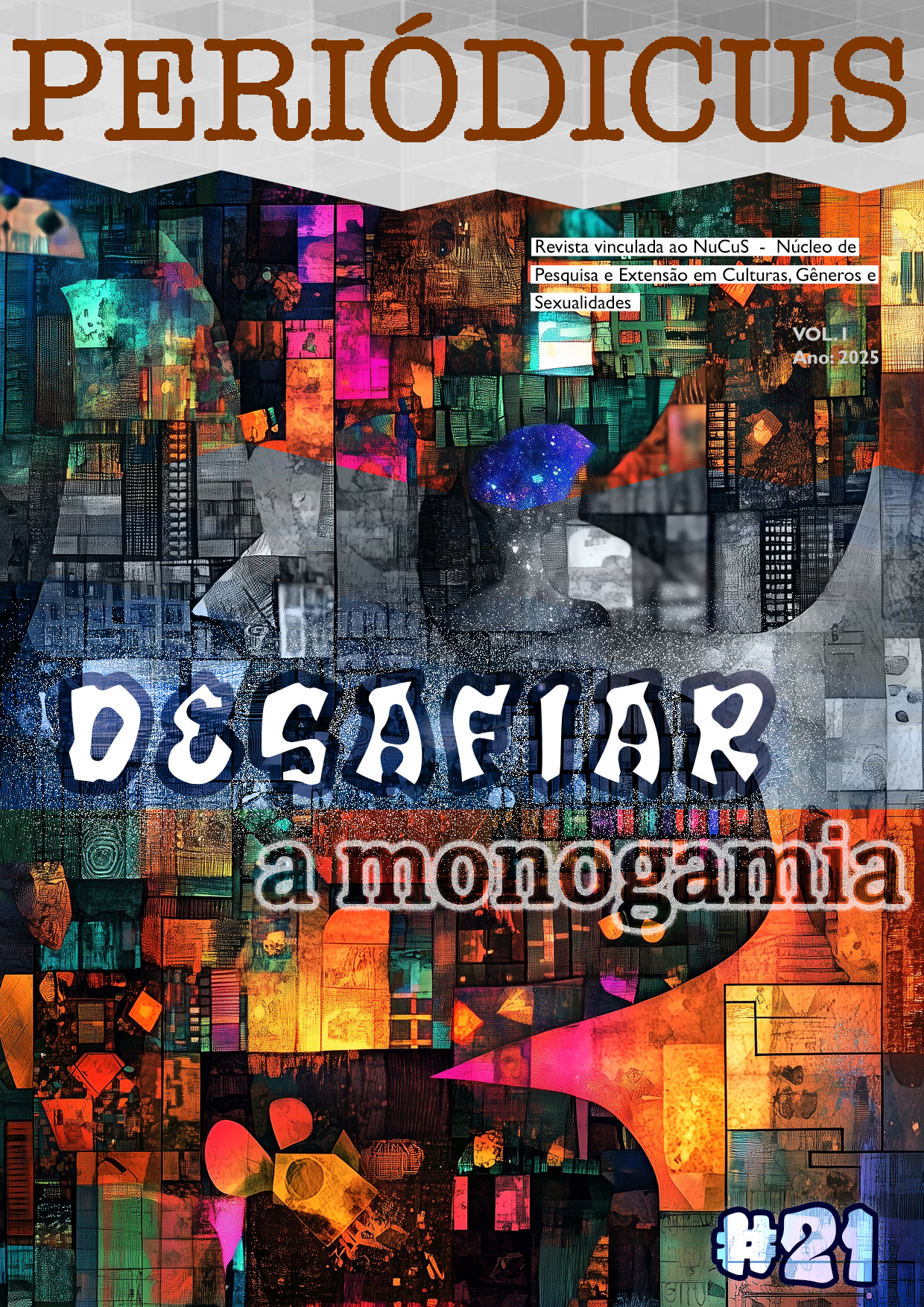A colonialidade/modernidade no mito do “amor-romântico”
DOI:
https://doi.org/10.9771/peri.v1i21.57499Resumo
O presente artigo tem como propósito analisar a mitificação do “amor-romântico” e as estruturas e convenções subjacentes ao modelo da monogamia e da heteronormatividade. O mito associado ao amor-romântico é encapsulado na promessa de felicidade (Ahmed, 2010) expressa, discursivamente, nos contos infantis: “e viveram felizes para sempre”. O amor-romântico, enquanto projeto da colonialidade do amor, regula não apenas como amamos, mas também o que amamos, quantificando corpos, afetos e relações sociais por meio de uma “tecnologia política” complexa e intrincada (Lauretis, 1988). Nesse contexto, à luz dos estudos feministas, questiona-se a padronização e a hierarquização dos desejos e afetos.
Downloads
Downloads
Publicado
Como Citar
Edição
Seção
Licença
Copyright (c) 2025 Saru Vidal

Este trabalho está licenciado sob uma licença Creative Commons Attribution-NonCommercial 4.0 International License.
Autores que publicam nesta revista concordam com os seguintes termos:
Autores mantêm os direitos autorais e concedem à revista o direito de primeira publicação, com o trabalho simultaneamente licenciado sob Licença Creative Commons Attribution Noncommercial que permite o compartilhamento do trabalho com reconhecimento da autoria e publicação inicial nesta revista, sendo vedado o uso com fins comerciais.
Autores têm autorização para assumir contratos adicionais separadamente, para distribuição não-exclusiva da versão do trabalho publicada nesta revista (ex.: publicar em repositório institucional ou como capítulo de livro), com reconhecimento de autoria e publicação inicial nesta revista.
Autores têm permissão e são estimulados a publicar e distribuir seu trabalho online (ex.: em repositórios institucionais ou na sua página pessoal) a qualquer ponto antes ou durante o processo editorial, já que isso pode gerar alterações produtivas, bem como aumentar o impacto e a citação do trabalho publicado (Veja O Efeito do Acesso Livre).








